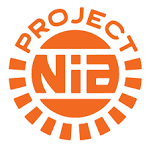
Graphic notes by Laura Chow Reeve / Radical Roadmaps
Giving Name To The Nameless: Using Poetry as an Anti-Violence Intervention
with Mariame KabaThe use of literature and guided reading has been recognized as a viable option for helping young people address their concerns. Poetry is a particularly wonderful way to address sensitive issues (like sexuality, violence, and self-esteem). When young people (or adults for that matter) see something of themselves in a piece of literature (books, poetry), identify with the work, reflect on it, and undergo some emotional growth as a result of that reading experience, this can be considered a useful anti-violence intervention.
During this session, Mariame Kaba, founder and director of Project NIA & co-founder of Interrupting Criminalization, as facilitated a workshop based on a curriculum resource that she developed along with Caitlin Ostrow-Seidler several years ago. The resource includes over 30 poems that address gender-based violence as well as tips and suggestions for individuals who are interested in facilitating poetry circles with girls and young women. Participants:
1. Explored the value of using poetry to address issues of violence in the lives of girls and young women.
2. Learned tips and information about how to structure a poetry circle for young women.
3. Received resources and ideas to incorporate poetry into existing programs and initiatives in working with young women.
Mariame Kaba (she/her) is an organizer, educator and curator who is active in movements for racial, gender, and transformative justice. She is the founder and director of Project NIA, a grassroots abolitionist organization with a vision to end youth incarceration, and has co-founded multiple organizations and projects over the years, including Survived and Punished, the Just Practice Collaborative, and Interrupting Criminalization.
LINKS
Giving Name To The Nameless
Graphic Note
